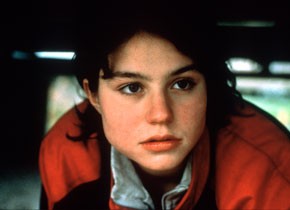"The Contentious Image": Jacques Rancière and the Historicity of Cinema
April 10 to 12, 2008
The writings of French philosopher Jacques Rancière, which consider politics and aesthetics as forms of complementary investigation, encourage us to question anew the utopian potential of film. From a technical point of view, film is one of the prime art forms of the 20th century; for Rancière, however, the automatism of filmic recording brings a project of Romanticism to fruition, namely the merging of the sensual with the intelligible. "It is the aesthetic programme of thought, art and community which was, so to speak, waiting for film, which then brought forth the term of an actual aesthetic art: an art which has been emancipated from a representative system which is tied to a hierarchical social order."
Rancière sees this latter order as a "division of the sensual" which establishes who can take part of the communal and who is excluded, who remains visible or invisible in a common space. Rancière also calls this order of the visible and speakable the "police". As an alternative, he proposes a policy which reveals itself in the form of discourse, in acts of subjectivization and utterance, and which thwarts the identities, functions and placements that the "police" have preordained. Against the backdrop of this tension, the conference “The Contentious Image” will attempt to discuss the "historicity of film" and the possibilities of a political film aesthetic (Drehli Robnik/Siegfried Mattl)
The conference will open on April 10 with a lecture by Hermann Kappelhoff. Films by Rainer Werner Fassbinder, Humphrey Jennings and Luc & Jean-Pierre Dardenne will be shown. Eight further lectures will take place on April 11 and 12 at the Insitute for Science and Art (IWK, Berggasse 17, 1090 Vienna). A programme of the Ludwig Boltzmann Institute for History and Society in cooperation with the Institute for Science and Art, the Austrian Film Museum, and the Austrian Society of Contemporary History.
